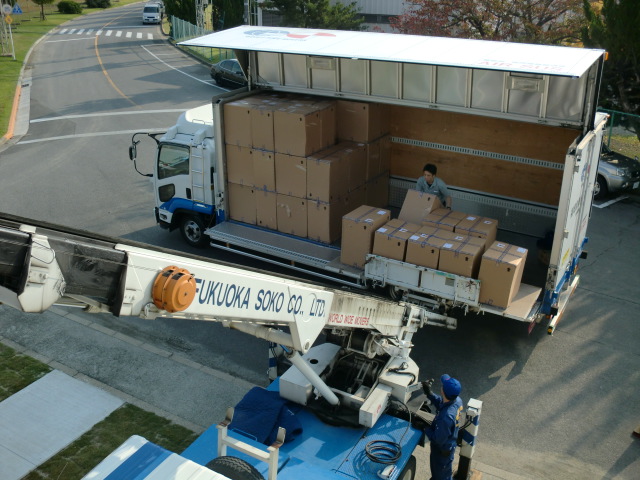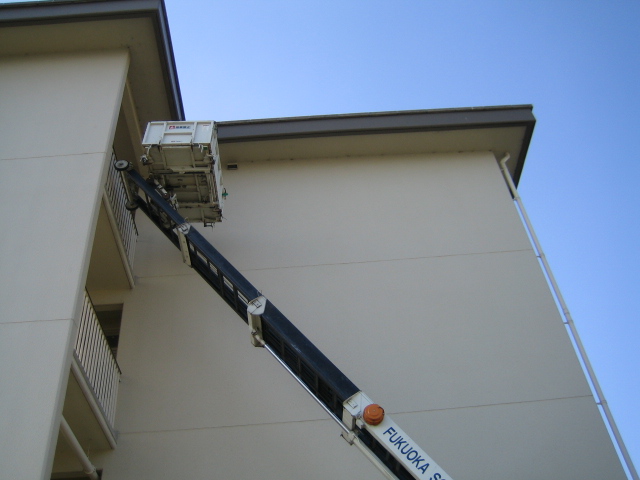- REGULATION OF CUSTOMS
- Can we import food?
We strongly suggest all our clients’ not to include any types of food in your shipment, since there are many detailed restrictions to importing edible items into Japan. If the customs suspect any food products in your shipment, there is a high chance they would select your shipment to go through further inspections including quarantine. This will definitely lead to a longer customs clearance procedure and additional charges for the extended inspection by Plant Protection Station will occur.
Please refer to Prohibited & Restricted items for inbound shipments.
- REGULATION OF CUSTOMS
- We want to import a shipment full of brand-new items, will it still be granted duty-free clearance?
Unfortunately not – importing a shipment full of brand-new items will be considered as a commodity shipment and not used household goods and personal effects. When a shipment is categorized as commodity cargo, duty and tax will definitely be applied to each item in the shipment.
- SERVICE
- I've never heard of your overseas partner – are they reliable?
Our partners have been selected through years of experience and hundreds of successfully completed moves. We only work with overseas partners who we know are capable of providing the same level of service that we ourselves give our customers in Japan. In addition, we work almost exclusively with members of the International Association of Movers, ensuring that our partners are internationally reputable.
- SERVICE
- My room is 3rd floor and elevetor is too small to deliver many carton boxes and big sofa. Can you deliver from balcony?
We hoist the items or will arrange sky porter truck if there is enough space to park infront of your apartment. Following is the site for using sky porter at the high-place work.

- LIVING IN JAPAN
- Do you have any general information about Japan? During my assignment, I would like to go daty trip or excursion with my family.
You may find some useful information from websites.
Statistics Bureau, Ministry of Internal Affairs and Communications
Japan Atlas
- SERVICE
- During my overseas assignment, I'd like to keep some things (furniture, appliances, etc.) in storage. What kind of warehouse or storage room do you have?
Fukuoka Soko's fully-equipped warehouses are clean and well-organized. We are able to offer various storage options in accordance with your requests. For more details,please contact us.
- SERVICE
- How much time do you need to estimate my household belongings and perform a survey of my shipment?
It depends on the size of your home and the amount of your shipment. Our standard surveys take between 30-60 minutes.
- SERVICE
- How long will it take for my shipment to clear customs and be delivered to my home after arriving?
After all customs documents are submitted, it generally takes
7-10 days for Ocean Shipments and
3-5 days for Air Shipments
For more details, please refer here
- SERVICE
- Do I (the shipper) have to be present in Japan in order for the shipment to be delivered?
Yes, in order for Fukuoka Soko to clear your shipment through customs and deliver, you must be present in Japan.
- REGULATION OF CUSTOMS
- May I bring my prescription medicines to Japan?
Some over-the-counter medicines commonly used in the United States and other countries, including inhalers, allergy and sinus medications are not allowed into Japan. Products that contain stimulants (medicines that contain Pseudoephedrine, such as Actifed, Sudafed, and Vicks inhalers), or Codeine are prohibited.
US Embassy - Bringing Medication into Japan
We strongly discourage you from packing prescription or over-the-counter (OTC) medicines or pharmaceuticals into your air/sea shipments. If Japan Customs discovers medicines in your shipment, they will inspect the entire shipment for prohibited pharmaceuticals and delivery may be severely delayed. Your medicines may be confiscated.
For more information about bringing your prescription medication and pharmaceuticals to Japan, please refer to Ministry of Health, Labour and Welfare
- REGULATION OF CUSTOMS
- My work visa hasn't been issued yet. Can I still receive my shipment?
Yes, it's possible. As long as you are
a. in Japan and
b. have your company issue a letter stating that your work visa is currently being processed, Fukuoka Soko may be able to release your shipment for clearance and delivery.
- REGULATION OF CUSTOMS
- What kinds of items are forbidden to bring into Japan?
The followings items are strictly prohibited.
a. Firearms and/or Weapons, Ammunitions and/or Explosives
b. Narcotics, Drugs and/or controlled substances
c. Pornography
d. Fresh/raw food stuffs
e. Counterfeit Items
f. Any species protected by CITES (Convention on International Trade in Endangered Species)
For details of prohibited or restricted items, please refer to the links below.
Japan Customs - Goods with Prohibitions, Controls and Restrictions
Ministry of Health, Labour and Welfare - Importing or Bringing medication into Japan for Personal use
- LIVING IN JAPAN
- What kind of electrical appliances can we bring to Japan? Are all of them usable?
It's generally a good idea to NOT bring your big appliances like microwave oven, TV, refrigerator, washer and dryer to Japan.
Most appliances are specifically made for the country or region in which they are sold, so it's probably a better idea to leave them in your home country. You can buy or rent appliances when you come to Japan and either sell them or leave them with your house when it's time to leave. Sometimes, the appliances will already be furnished by the landlord or your predecessor. Rental and lease arrangements for appliances are also available. For details, check with your company's HR department or ask Fukuoka Soko. We can introduce you to a lease/rental company.
If you do decide to bring appliances that uses European, Oceanian and Asian voltage (220V or 240V), you may need to use electrical transformers. Also, you should be aware that if one of your appliances breaks, you may face considerable difficulty finding replacement parts and getting the appliance serviced in Japan.
Japanese voltage is 100V. Electrical items (like simple toaster ovens or coffee makers) from the USA, Canada, Guam, Saipan, Taiwan will generally work fine but a little slower or not as hot. For proper operation, it's best to set up and use the appliance through an electrical transformer. Step-up transformers are available in Tokyo (Akihabara) and via mail order through various sites.
For more information on electricity around the world and plug types, please visit the link below.
Electricity around the world





